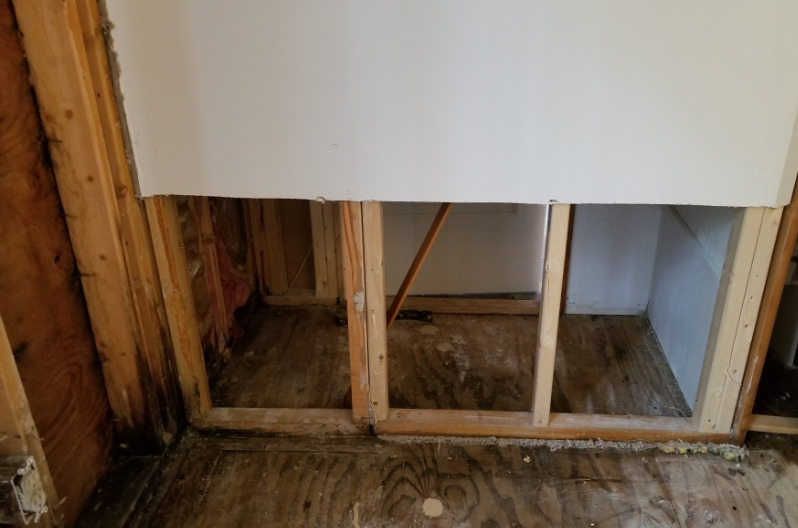Are your walls wet because of a leaky roof? Did a flood leave you with wet walls? Any water source can cause serious damage to your home, especially if your walls get wet. Drywall will start to weaken as soon as it comes in contact with water. With enough water or over a long enough time, your walls can fall apart or lead to structural damage. However, you don’t always need to replace drywall after water damage. We look at the signs of wet drywall and explain how to repair water damaged drywall. If you have wet walls after a leak or flood, follow these steps for drywall water damage repair.
What Are the Signs of Drywall Water Damage?
From water spots to peeling paint, there are several signs of water damaged walls:
- Water Spots or Stains – Yellow-brown stains normally mean a slow or inconsistent leak. These stains normally radiate out from a central point, with the darkest area in the center.
- Discoloration – Walls may look darker, but they can be lighter depending on the paint color.
- Peeling Paint or Wallpaper – Water causes paint or wallpaper to peel up and even chip or flake.
- Bubbles – Bubbles in paint or wallpaper usually happen when the water soaks through from behind.
- Sagging or Crumbling Walls – Larger amounts of water will cause walls to sag, buckle or even crumble. In most cases, replacing the drywall is the only option.
- Mold Growth – Mold spores will grow on any surface that stays wet. If you see mold, there is definitely a water issue. Other signs of mold growth are musty smells, dark stains, and soft spots on the drywall surface.
Does Wet Drywall Always Need To Be Replaced?
Wet drywall does not always need to be replaced. You can sometimes dry out and save your walls if you act quickly. However, whether you can save them depends on how much water, how fast you can remove it, and how quickly you can dry the area. Drywall is a porous material, so it will continue to soak up standing water. Sometimes, you only need to replace a small piece of drywall. However, the higher the water level, the greater the risk of damage to drywall and wall studs.
How Much Water is Involved – The more water involved, the less likely you’ll be able to save wet drywall.
How Soon You Can Remove the Water – The longer it is wet, the more likely you’ll need to replace it.
How Quickly You Can Dry It – Even if you clean up the water, your walls can stay wet for days. To prevent more damage, you need to dry them quickly.
Common Causes of Wet Drywall
Any source of water can ruin the wall materials and even your wall studs if you do not clean it up right away. The most common causes of wet drywall include:
- Plumbing Leaks
- Roof Leaks
- Leaky Water Heaters
- Pipe Bursts
- Dishwasher Floods or Leaks
- Washing Machine Overflows
- Sewage Backups
- Overflowing Sinks or Bathtubs
Frequently Asked Questions About Drying Water Damaged Walls
Cleaning up water damaged walls is stressful and time-consuming. Let our specialists dry out your home fast. Call 1-888-443-3110 for a risk-free estimate on water damage restoration services.





